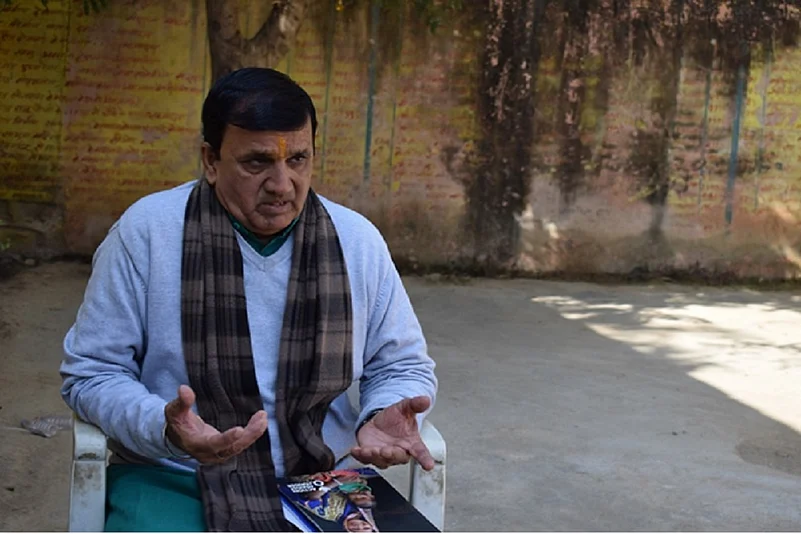Panchayati Raj was launched in 1958 based on recommendations of the Balwant Rai Mehta committee that later got constitutionalised in the year 1992. With 28 years of Panchayati Raj Institutions (PRIs) and nearly 2.5 lakh Gram Panchayats across the country, PRIs continue to be the drivers of development initiatives at the grassroots. In last few years, PRIs have been recognized as the agents of introducing critical infrastructure in rural areas. It is correspondingly significant to understand the capacity and role of PRIs in influencing the behavioural outcomes of the community, which will effectively aid in improving the quality and uptake of service delivery, including nutrition. In this context, POSHAN Abhiyaan emphasized on recognising PRIs as the agents of Jan Andolan (social movement) to improve the nutritional outcomes for the mother and child dyad to combat the intergenerational cycle of malnutrition.
Advertisement
There is substantial global and local evidence to illustrate how community leaders are proven catalysts for diffusing innovations at the grassroots and building community trust and acceptance of same. PRIs have played a similar role in mobilizing communities to avail and access nutrition services by generating awareness through continuous engagement. As a locally elected leader, the Gram Pradhan can address and mitigate concerns that members of the community might have around services and initiate acceptance of services while targeting key local behaviours.
To further maximize the outreach of nutrition services in the community, PRIs can course correct and support the channels through which services are provided at the beneficiary level. An integral channel to deliver POSHAN Abhiyaan services to the targeted set of beneficiaries is the Front-Line Workers (FLWs) including the Anganwadi Worker (AWW), the Accredited Social Health Activist (ASHA), and the Auxiliary Nurse Midwife (ANM). PRIs can provide support to FLWs in inter-personal communication with beneficiaries during counselling and home-visits, on-site visits, and review of services such as mid-day meals in schools, Take-Home Rations in Anganwadi centres (AWCs), Village Health and Sanitation Day, and Community Based Events such as complementary feeding day (Annaprashan Divas) and other services impacting nutritional outcomes such as Ujjwala Yojna, Public Distribution Services to name a few, by analysing if they are operating optimally and have the required assistance from concerned departments.
Advertisement
Additionally, PRIs can facilitate the settlement of identified issues and concerns at the local level, through the platforms like Village Health, Sanitation, and Nutrition Committee meetings and 'Gram Sabha', a vibrant democratic platform and make nutrition a matter of public deliberation. A study conducted in Karnataka’s Gulbarga district (2012) to assess the awareness level about Gram Sabha showed that 90% of the village residents consider Gram Sabha as a unit of local self-governance. PRIs if capacitated and motivated, will be able to leverage the space of village level platforms to address health and nutrition-based issues through a participatory approach and make it an inclusive forum for the women and marginalized groups.
To implement development programmes at the grassroots, PRIs form an important conduit to initiate the interdepartmental coordination at the last mile. PRI representatives through Gram Panchayat Development Plan can promote the fair inclusion of health and nutrition-based concerns along with the convergence of related schemes. As an adequate response to address malnutrition, PRIs must be supported with knowledge of funds available, budgeting, and correct understanding of the local issues. For instance, Mahatma Gandhi National Rural Employment Guarantee Act funds can be utilized not just to guarantee minimum days of employment, but also to support critical civil work like building road to an AWC or providing drinking water supply to AWCs and schools.
Advertisement
To enable the PRIs to promote self-governance and take adequate action at their level to resolve issues, the Government needs to focus on capacitating them by institutionalising a professional development approach. PRI members should be trained on different aspects of management leading to effective, efficient, and an all-inclusive transformation of villages. While it is important to build the capacities of PRI members to effectively manage the community development portfolio, it would also become pertinent to leverage other community-based platforms such as Self-Help Groups, cooperatives, and community-based organizations in the effort to address malnutrition. In addition, it is very crucial to train PRIs on financial management, as they should be able to strategically utilize the funds available, prioritizing the requirements in a planned and systematic manner.
Advertisement
There are momentous instances of Sarpanches who continue to amplify efforts in making their villages a ‘healthy place to stay’. “I don’t do it alone; the whole community stands with me to work towards the development of the village. We will eradicate malnutrition from the village. Our work has only just begun and there is a long way to go”, says Mahendra Kumar Sharma, Gram Pradhan (GP) from Matunda village in Rajasthan(the initiative was led by Action Against Hunger, wherein, WeCan-IPE Global Ltd. provided knowledge product building support by documenting the initiative). For more details, you can access the document here: https://www.wecollaborate4nutrition.org/wp-content/uploads/2015/12/MAKING-PRI-CHAMPIONS-FOR-JAN-ANDOLAN.1.pdf
Advertisement
PRIs must be leveraged as the essential link between the beneficiaries and the government who can strengthen the coverage, continuity, quality, and intensity of nutrition programs to ensure increased household level convergence of various services. As nutrition is everyone’s right, a well-nourished child in full potential can contribute to better economic development of the household and subsequently the nation. PRIs in that regard must step up to be the True Catalyst.
(Binu Anand is the National Team Leader and Riya Gupta is the Research and Content Development Officer at Project WeCan, IPE Global Ltd. The views expressed here are personal.)




















